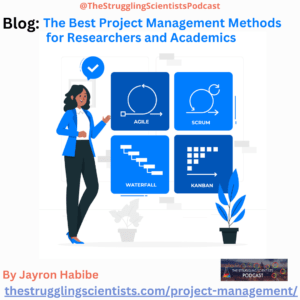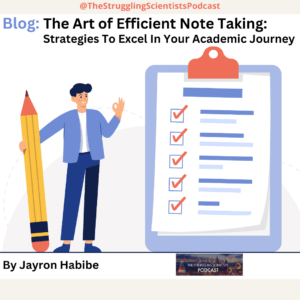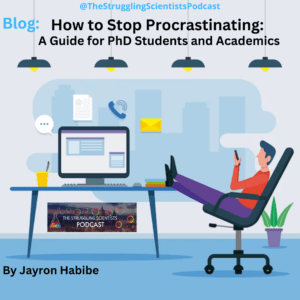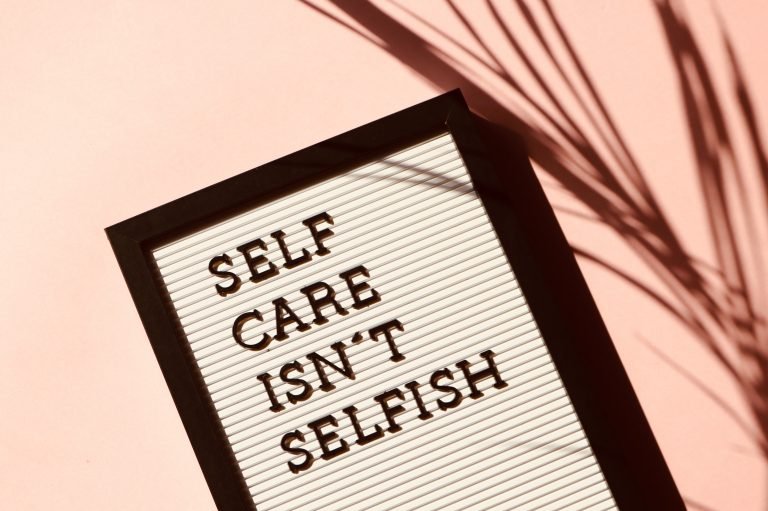Our mental health is important but finding the time or knowing what to do to best take care of it isn’t always easy. In most cases I’ve come across mental health is often described as this opaque, hard-to-pin down thing. However, I would argue that your mental health is largely a function of how you choose to allocate your time and attention.
What I mean by a function of time and attention is that if you could choose to spend your time and attention on only things you enjoyed doing or that were good for you in the long run you may not need some compex mental health practice.
While we may enjoy doing research and contributing to science we probably are less excited by the prospect of writing a paper or working on a failing experiment for years. You can see how if all your time and attention were dedicated to only these tasks that it would make you pretty miserable and you would need a therapist as well at some point.
Now given that premise, how then should we be allocating our time and attention effectively to best take care of our mental health? If only there were ways we as PhD students could more easily take care of our mental health.
Fortunately, there are and in some cases, they are things you may already be doing or want to be doing. This is where the life hack comes in. Below you will find the Table of contents if you wish to see what is coming up or jump ahead to something that catches your eye.
What is a Life Hack?
As PhD students, we have so much to do and rarely enough time, energy, or resources to do it well. As a result, we often neglect to take care of our mental health which can come back to bite us in the near future.
This is where life hacks can come in to help. If you are unfamiliar with the concept of a life hack it is “a strategy or technique adopted to manage one’s time and daily activities more efficiently”. Here is an extremely brief history lesson as to its creation.
The term hack was popularized at the Emerging Technology Conference in 2004 and was originally used to describe slightly embarrassing shortcuts/ methods IT people used to accomplish tasks.
Despite usually not being the most elegant or sophisticated methods, hacks made up for it with their ease of use, efficiency, and efficacy. Since its popularization, the term hack or hacking has been incorporated into various fields and media and has become synonymous with an easy way to accomplish something.
Whether its doing something technically challenging on your computer, finding a cheap way to waterproof your shoes, or taking better care of your mental health, hacks can be useful as we will see shortly.

Why use Life hacks for Mental Health?
Mental health along with our physical health are some of our most valuable resources and assets and once we lose them it’s hard if not impossible to get them back. So given that we are struggling to stay afloat as PhD students and rarely find time to take care of our mental health what is an easy way that we can take care of our mental health then?
Well fortunately for you I have listed 7 life hacks for you in this blog that I have done myself during my PhD and honestly wish I had done sooner. I should also warn you that several of them are not for everybody and they are not all free but are things that helped me with my mental health through difficult times during my PhD.
So before you decide to write me an angry email or comment saying how some of these are unrealistic and won’t help you, just a kind reminder that these methods worked for me so there is no guarantee that they will also work for you.
My hope with this blog is that one or multiple of these life hacks may help someone else in a similar position as I was. So here I go just imparting my anecdotal N= 1 wisdom onto the internet for your amusement (and my potential beratement).
I have chosen to be happy because it is good for my health.
Voltaire
Having a great Partner
Let me just clarify that I am not saying you should go out and just partner up with the first option you can find!
What I am saying is that the PhD is hard and having someone you love and who loves you back be there to support you through the hard parts is the biggest and best life hack I can provide on this list.
A great partner elevates you to be the best version of yourself and in either subtle or very obvious ways helps you overcome your self-limiting beliefs and rise above them.
I can only speak from experience that I have been incredibly fortunate to have met my partner Suzanne without whom I would never have dreamt to run a marathon, starting a podcast, eating healthier, traveling more, having 2 dogs, starting a company, and make it until the end of my PhD. All during the final year of my PhD mind you.
I never said the life hacks on this list were going to be easy but without a doubt, the biggest life hack you can have as a PhD student is an amazing partner. To be able to trust and love someone is truly one of life’s greatest blessings and it will also help you better understand your priorities in life.
What you will quickly realize is that you have a finite amount of time and you will need to ask yourself how you intend to spend that time. Would you rather push through working in the evenings and weekends or would you rather spend that time with your loved one?
To each, their own of course and I’m not judging anyone for their individual choice. For me, however, that decision was rather straightforward. Would I rather spend more time working on failing experiments and potentially burn myself out or would I rather spend time enjoying life and relaxing with Suzanne and in doing so not burn out ?

Getting a Pet
Life hack number 2, getting a pet. Probably the most expensive but also the highest return on cuddles out of the entire list (assuming you get a cat or dog or something like that of course).
While buying a pet can be quite expensive you can also adopt one. They are not only a ton of fun but also bring more joy to your house (see pictures below of our not one but two fluffy friends).

Dogs are also great as they require walks and so you also get your daily recommended steps in while getting some fresh air and in doing so may also end up conversing with other dog owners as well.
Regardless of how bad my day goes, I can always count on these two to draw my attention away from the negative and focus it on them while playing or walking.
Which are all great added mental health benefits to having a pet.
Obviously, getting a pet is not realistic for everyone and maybe you’re allergic to cats or dogs but I would highly recommend getting an animal companion if it’s possible for you because it can be a lot of fun and bring with it numerous mental as well as physical health benefits.
The fact that you have a pet waiting for you at home, in my case dogs, made me become very clear regarding my time management and work-life balance. I have a certain amount of time allocated towards working on my PhD and beyond that, I need to get home to take care of these fluffy bastards.
Sorry if this section is primarily mammal-biased. We also have fish however as you probably imagine there is not much happening there in terms of playing or walking them.
Productivity Apps
At this point, you might be wondering how can a productivity app help with my mental health.
Well, most of them won’t at least not directly but the way I see it is if an app helps me accomplish a task even 1% faster or easier then it’s probably worth it.
The reason is that I can then spend that saved time or mental effort and focus it elsewhere like taking care of my mental health.
I think most people who have tried a productivity app in the past and felt like it didn’t live up to expectations probably had unrealistic expectations to begin with or may not have found the right app for them.
Now you might look at a 1% improvement in time saved or effort exerted and deem it not worth the effort invested to get and learn the app, but I would argue that if it is a task you will find yourself doing a lot it can save you a lot down the road.
One of the best productivity apps I’ve ever used is Notion. By using Notion I’ve been able to do many things including :
- Track ideas and articles read for my thesis
- Journal and keep track of events in my life
- Consistently produce 14 memes a week for over a year for social media
- Take notes of everything I learn and the ideas I have
- Plan my marathon training
- And organize podcast-related stuff like this blog or Twitter threads
The 1-2% of time and effort saved by using Notion is not a one-time thing but rather compounds over time and allows me to relax knowing I have the info I need and only need to streamline my process. This then reinforces the confidence that I am progressing while also providing me slightly more time to allocate towards say meditating for 10-15mins every morning.
Now just because Notion is my favorite productivity app doesn’t mean it will be yours as well but it can’t hurt to try it.
In my eyes, a customizable productivity app like Notion that constantly updates is robust, has a large community behind it, and can help boost my confidence by turning my ideas into results has been instrumental in helping me achieve better peace of mind.
If you’d like to try out Notion you can click on any of the images here or on this link and I hope you enjoy using Notion as much as I do 🙂
Walking in Nature
The cheapest life hack you can do assuming you have some nature around where you live of course. Not only is walking good for your physical health but a recent study also showed that it benefits your mental health by reducing stress and anxiety.
While I normally wouldn’t go out walking by myself I have found that it ties in nicely with getting a pet (specifically dogs) as it’s unavoidable when you have 2 dogs that require 3x walks a day and so we walk.
It’s very rare for me at this point to not get in over 11000 steps, clear my head, listen to an audiobook or podcast, ponder ideas, and get to spend some quality time with the dogs, win-win.
Again, cheapest and easiest life hack to implement with numerous benefits, and if you needed a high-impact peer-reviewed paper to convince you to do it then there is also that. Just get started doing it and thank me later.
Commit to a Hobby 2- 3 Times a Week
Having a hobby is great for your mental health as it’s something to focus on and develop skills in that are outside of your work.
Having a hobby also allows you to develop confidence in your ability to learn and improve in something and can overall boost your mental health, especially on days where work/ the PhD didn’t go according to plan.
One of my hobbies for example is running and I continuously try to find awesome running events to attend and train for which keeps me motivated to train and makes me make time to train. Otherwise, the event is going to be a terrible experience. As you can probably imagine, once you sign up for a marathon you kind of need to train for said marathon or risk getting seriously injured. Since a picture is worth a thousand words here you go.

Just to be clear, not saying you should sign up for a marathon. Just saying that if you commit yourself to a hobby or goal that is independent of your PhD it will force you to allocate time and attention to that pursuit in a way that may overall be better for your work-life balance.
Regardless of what your specific hobby is as long as it helps you to disconnect from work and allows you to feel happy keep doing it.
Great hobbies are not only good for your mental health but depending on what they are can even be an asset to your resume when applying for your next position/ job. Case in point, I added the fact that I run and more specifically ran a marathon to my resume.
Not sure exactly how much it helped in landing me the interview but at the very least it didn’t hurt it. In short, if you have the time and energy to pursue a hobby you enjoy please do because its good for you in a myriad of ways including your mental health.
Read or Listen to (Audio) Books
For some of you reading this, reading or listening to audiobooks may already be your hobby in which case that’s great! Keep doing what you’re doing. I would just add that if you primarily read fiction you may want to consider adding some nonfiction to your reading list as well.
The reason is that nonfiction books often have some wisdom embedded in them that helps to teach you something new.
Now, I’m not saying you need to go out and buy every single self-help book out there and do everything exactly as they describe but do consider at least the ideas the authors are arguing and ask yourself “does this help me?”
For example, early in 2021, I was an emotional wreck struggling with feelings of inadequacy for the PhD as well as every other endeavor I was busy with including my marathon training, the podcast, and even taking care of the dogs.
It was during this time that I started reading more nonfiction books focused on productivity and a little bit of self-help which I found really helped me get out of my slump. I’ve read and listened to several books that I have found useful and have many more on my reading list but for a short list of books to consider here you are:
Creative Outlets
Yes, I know I said we barely have time and energy to do anything alongside our PhDs but hear me out on why you need a creative outlet before you close this tab.
Before I started writing blogs, doing a podcast, and writing a newsletter I would never have said I had the energy or time to do any of it alongside my PhD. It’s also not because we are lazy or simply procrastinating that we aren’t able to convert more time and attention spent on our PhD project to results.
Doing a PhD is hard mental work similar to hard physical work or training. If you’ve ever seen an elite marathon runner train you will notice they spend a lot of time also resting afterward in order to recover and prevent possible injuries from occurring.
I have always found it interesting that people accept that elite physical athletes need good recovery but the same view is not held for elite mental athletes, which I would call someone working on cutting-edge research.
Regardless, as elite mental athletes it is also important to get sufficient rest and diconnect your brain from focussing solely on your academic work. One way to accomplish this is by having a creative outlet.
The reason I didn’t list this under hobbies is that a creative outlet is not necessarily somehting you need to improve on or follow a strict schedule for say like running. A creative outlet can be a simple as writing in a personal journal and posting memes online, or as complex as starting a podcast or creative sidehustle. What your creative outlet is and results in is up to you.
The main advantage of a creative outlet is that it draws your time and attention to creating something you or other people might enjoy using a specific media like podcasting, knitting, or posting memes on social media.
Conclusions
I hope this article was useful and that you enjoyed reading it as much as I enjoyed writing it.
Let us know what you thought or if you have any life hacks that definitely need to be included.
If you’d like to continue reading another one of our interesting blogs consider checking out either our articles on Embracing your weirdness as a PhD student or best Chrome extensions for PhD students
Thanks again for reading and we will see you, next time folks!









